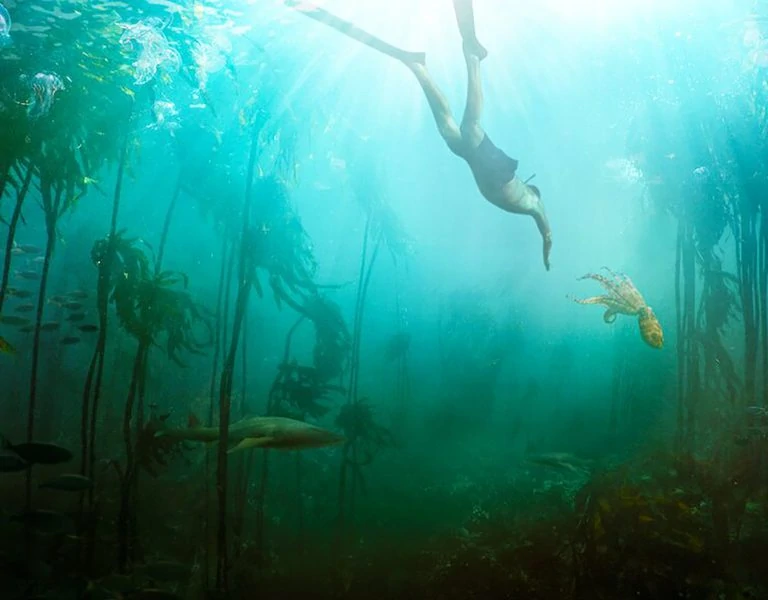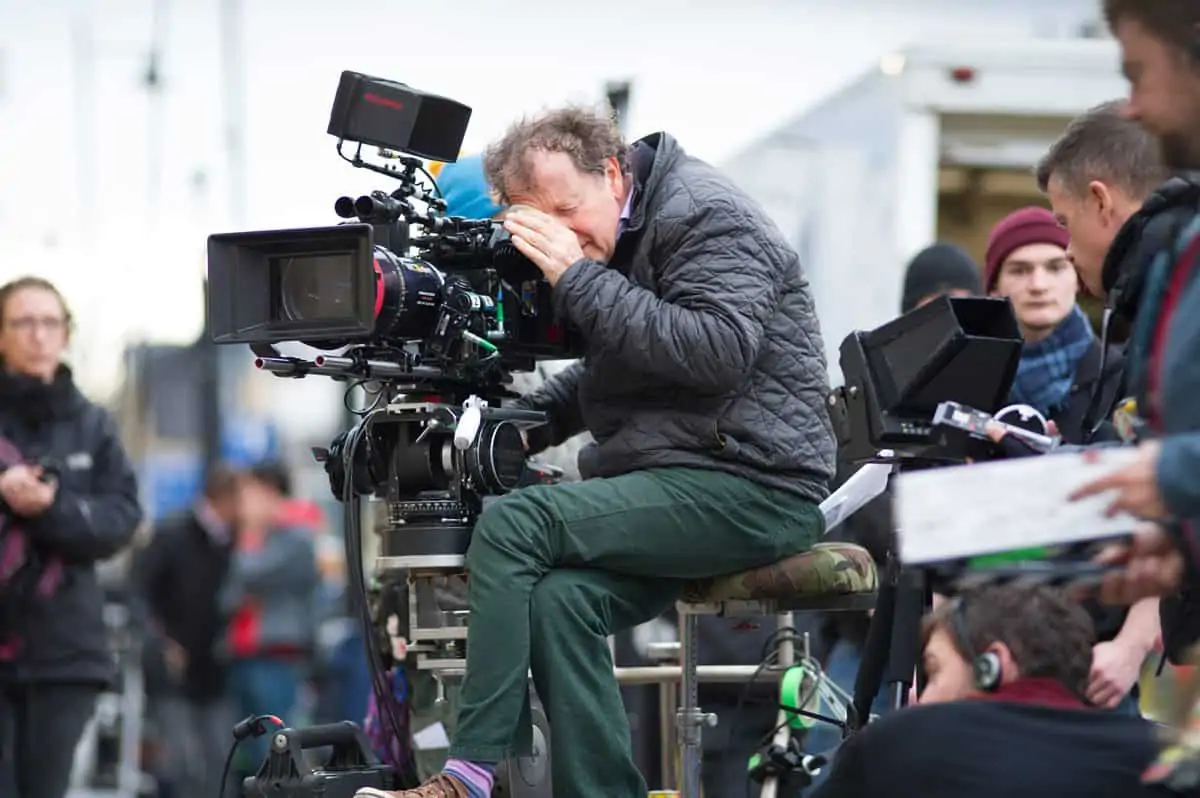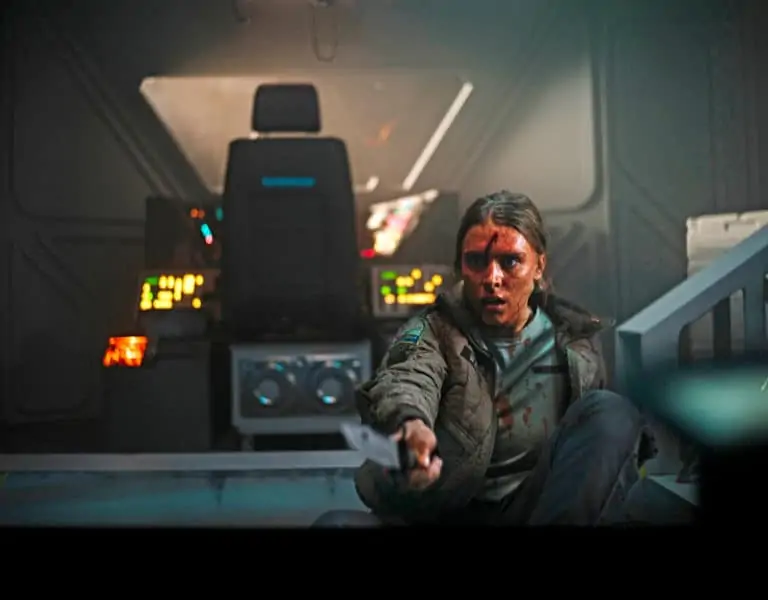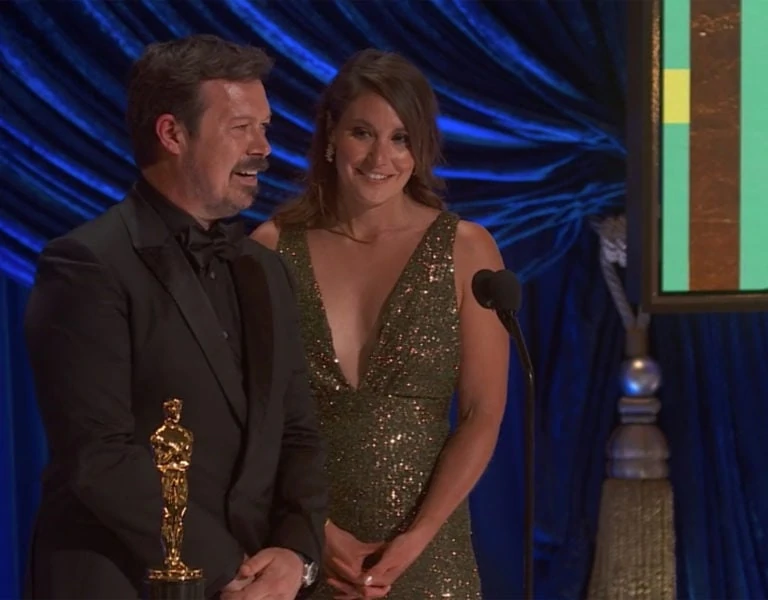Points of View
Stijn Van der Veke ASC SBC / The Sum of Histories
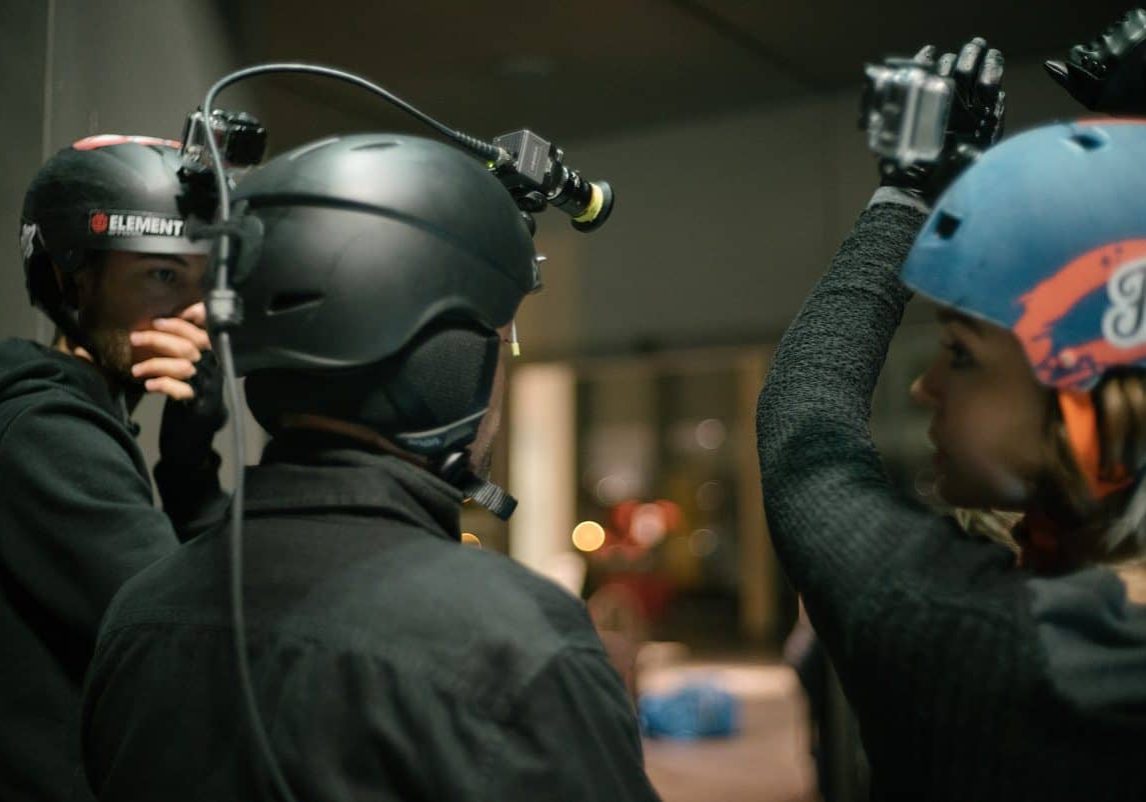
Points of View
Stijn Van der Veke ASC SBC / The Sum of Histories
What would you do if you discovered that you could alter the past? That’s the premise of Caviar Film’s €2million sci-fi thriller, The Sum Of Histories, the first feature for director Lukas Bossuyt.
In the movie, Viktor, a young and brilliant professor, discovers a way to send e-mail messages back in time. This means he can prevent the car crash that paralysed his wife more than 20 years before. However, Viktor soon learns that changing the past is not without risk, and the future does not turn out as expected.
“Theoretically time travel is possible, although in practicality we know that it isn’t,” says the movie’s cinematographer/operator Stijn Van der Veken SBC ASC. “It was this notion, the dilemma of the characters and the twists in the story that intrigued me and attracted me to the project. Within this I had the interesting creative challenge of creating different looks, points of view, that would set the action in alternative periods of time.”
The action takes place around the university campus in the Belgian town of Leuven. Established in 1452, the university has many elegant and imposing buildings dating back to 16th and 17th centuries. It was Van der Veken’s task to conjure-up imagery that would use this backdrop for both the present day as well as 20 years into the future.
Van der Veken, who lit the 2013 Oscar-nominated short Death Of A Shadow, has an accomplished eye when it comes to creating stylish looks. He has major period and modern drama series, including The Emperor Of Taste (2008), Quiz Me Quick (2012) and In Flanders Fields (2014) under his belt, along with many commercials for blue chip brands such as Lotus, Volkswagen, Mobistar Telecom, Emirates Steel and First Gulf Bank, along with many shorts. Connections matter too, and Van der Veken’s name was put forward to Caviar for The Sum Of Histories by producer Frank Van Passel, with whom the cinematographer had worked on The Emperor of Taste.
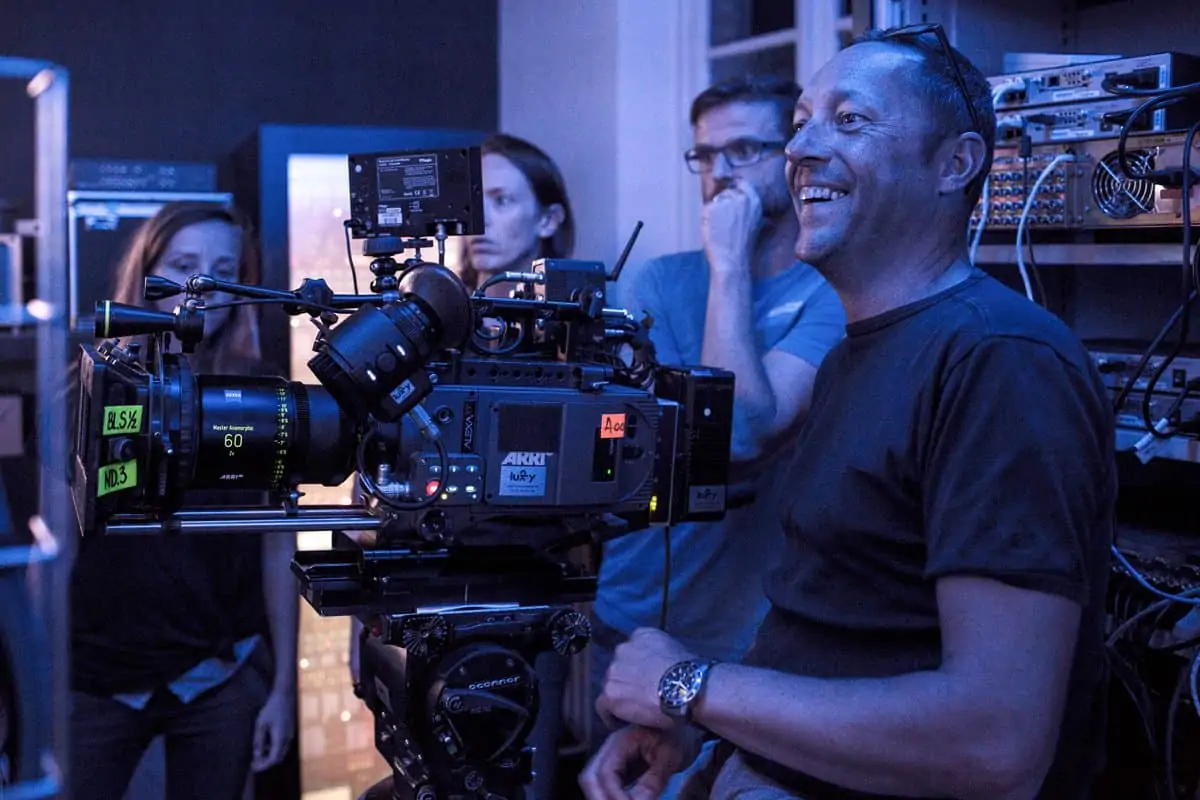
“They liked my previous work, enthusiasm for the project – especially my creative approach to a really gripping action scene – as well as my willingness to support Lukas through his first movie project,” says Van der Veken. “Belgium is a small country and, because of the small market, the movies tend to be low-budget. So my challenge was how to give this intelligent, thought-provoking script a big cinematic feel?”
He continues, “There is little celluloid infrastructure left in Belgium now. So, as I was already familiar with, and liked very much, the ARRI ALEXA XT and the Codex/ARRIRAW workflow, from my commercials and shorts work, I opted for that. I wanted to use shadow details and knew that ARRIRAW would provide full dynamic range and good contrast, whilst the Codex workflow was a reliable plug-and-play system.”
As it was Bossuyt’s debut in features, Van der Veken says a lot rested on his ability, “to listen carefully to Lukas’ instructions, and to translate these ideas, through my experience, into the pictures he wanted. Essentially, the future had to look powerful and brittle, whilst the present is warm and more secure. I did not want to do this in grading. Rather I wanted to achieve as much as possible on-set, in-camera – using the art direction, production design, lighting, lenses and subtle LUTs – to create these different styles.”
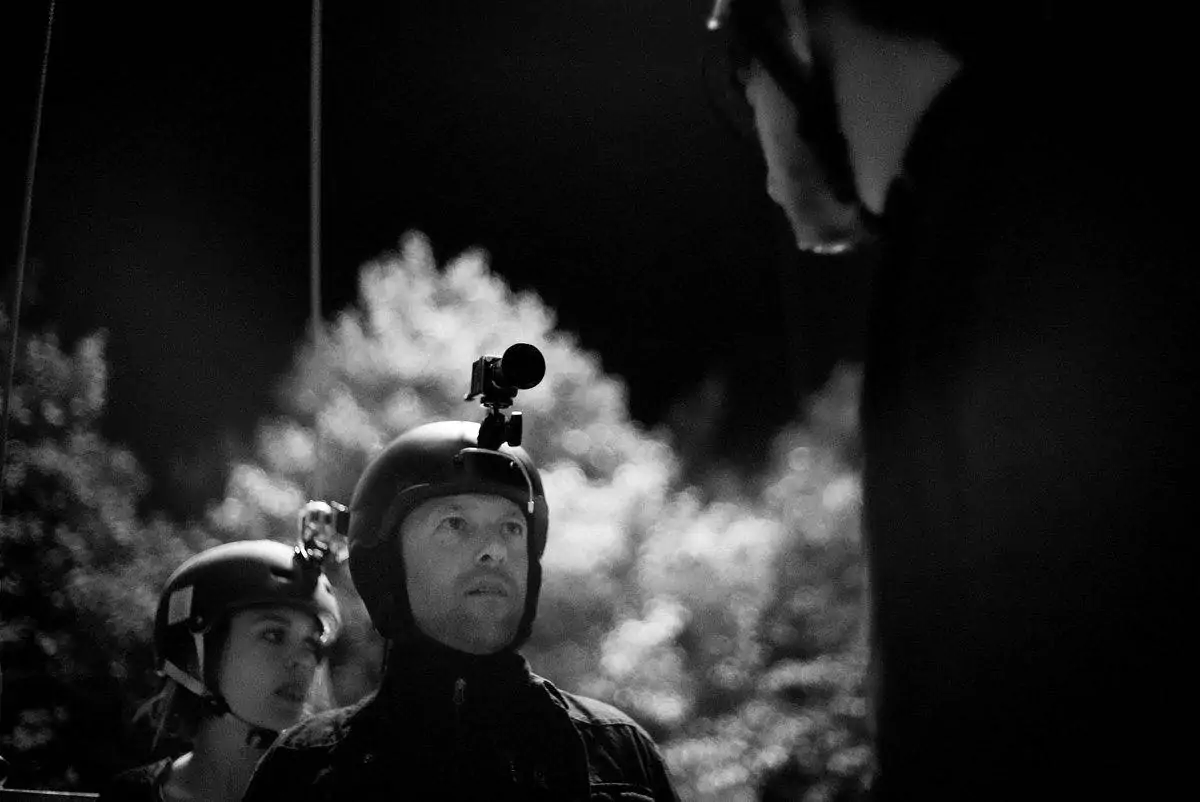
Optically, Van Der Veken decided to use a set of 1950’s spherical Cooke S3 Panchro lenses, rehoused by True Lens service in the UK, with a 1:2.39 aspect ratio for the present-day scenes. To frame the future, he went with the powerful look delivered by full Anamorphic ARRI Zeiss glass, shooting 4x3 for a 1:2.39 result. In pre-production he collaborated with his long-time DI colour grader, Peter Bernaers, at Flow in Antwerp, to design appropriate LUTs that would be non-destructively applied to selected takes on-set. This ensured the look was being defined during production, whist also giving confidence to the producers.
Van der Veken pays tribute to his 1stAC/focus puller Didier Frateur in managing what he calls “the voodoo of the old lenses,” and his DIT Boris De Vischer, “for giving me the confidence that what we shot on-set, was what we’d get in the DI grade. As this was a low-budget production, we did not have the luxury of on set-colouring tools, and there was no room for error. Boris used Codex, and its Virtual File System, to clone the ARRIRAW, transcode dailies for editorial, and create LTO archive copies. Every now and then he would bring me graded dailies, using the LUTs, which I viewed as MP4s on an iPad, so that I could double-check the looks were what I wanted.
“I have to say that those guys at Codex rock and roll. The Codex technology with the ARRI cameras, and the ARRIRAW capability, is a marriage made in heaven. It’s just so reliable. I will never shoot a digital movie in the future without having that combination with me on-set.”
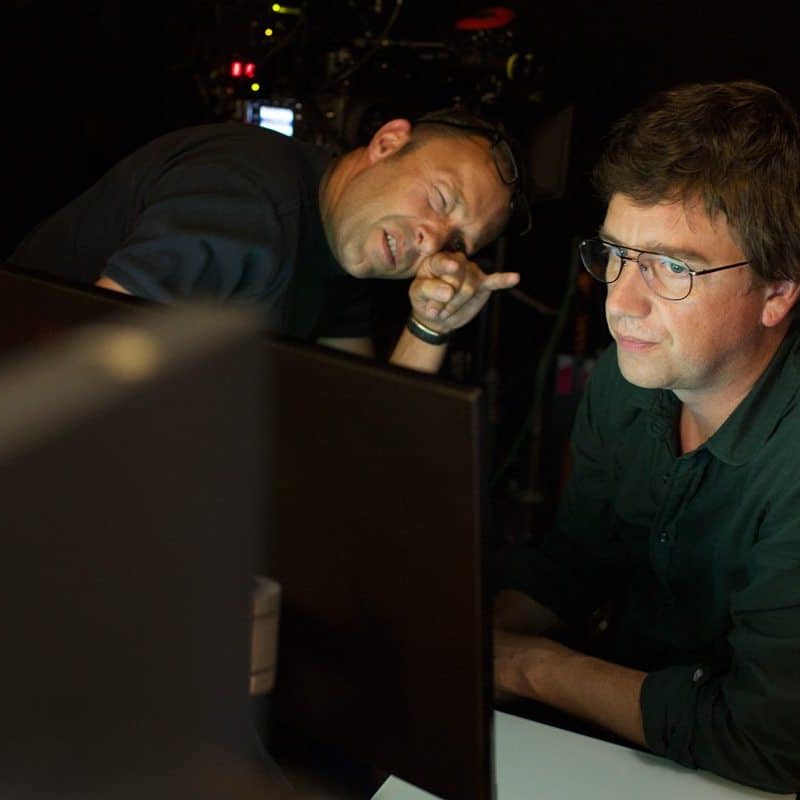
"Although the Action Cam and recorder package was in prototype at the time, it worked perfectly. The technical support from Codex was excellent too."
- Stijn Van der Veken ASC SBC
But Codex’s involvement in The Sum Of Histories didn’t stop there. Van der Veken’s other key challenge was to bring a fresh perspective to a thrilling nighttime stunt sequence, in which a trio of the protagonists hang a large protest banner on the side of a tall building. Enter the diminutive Codex Action Cam – point, shoot and post package.
"Codex Action Cam came as a gift to me on the production,” says Van der Veken. “I tested it against other small cameras, but no other camera came close – in terms of image quality, size of the camera head and the workflow.”
Assisted by Frateur, the Codex Action Cam head was mounted on a helmet, skydiver style, rated at 400ASA, a fitted with a C-Mount Kowa 5.5mm lens. The Camera Control Recorder, plus a Teradek wireless video transmitter, were neatly packaged inside a small backpack. Boldly donning the Action Cam kit, Van der Veken shot part of the stunt sequence himself, variously lensing the protagonist and antagonist points-of-view, whilst being suspended 30m above the ground.
“It was pretty scary stuff,” he recalls. “Also, this was one of the most expensive days on the movie and we just had to get it right first time. Although the Action Cam and recorder package was in prototype at the time, it worked perfectly. The technical support from Codex was excellent too.”
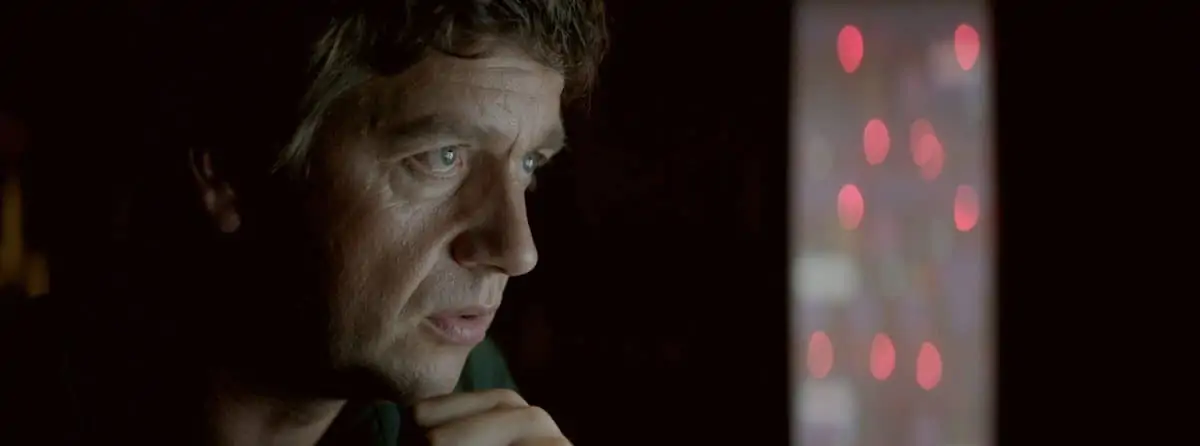
Back on terra firma, the RAW camera footage was transferred to a Mac laptop and converted to 10-bit DPX using the Codex Virtual File System. “The 12-bit RAW pictures were perfect for the look of the nighttime photography, and for invisible wire removal in post. Also, the Action Cam pictures intercut really well in context with the ARRIRAW of the overall movie.”
Van der Veken notes: “When you are a cinematographer, you must have confidence in the tools you use, and for those tools to let you get on with your job undistracted. That’s the way Codex think, and how they have arrived at their on-set products, and it’s the same with Action Cam too. I am really pleased with the final result on The Sum Of Histories.”
The Sum Of Histories is scheduled for release in autumn 2015, to coincide with start of the academic year at Leuven University, where it’s bound to be popular.
